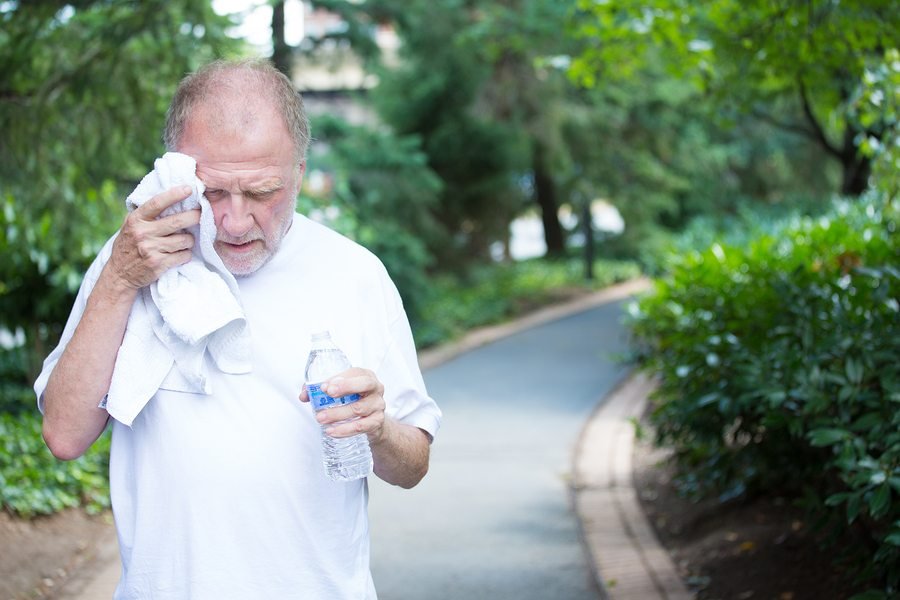For older adults undergoing cancer treatment, dehydration is a common side effect. A cancer patient may become dehydrated because of other side effects, like nausea, vomiting, and diarrhea, that make them takin in too little liquids or to lose them. Dehydration should not be taken lightly as it can be very serious and even lead to death.

Elderly Care in Davis CA: Avoiding Dehydration With Cancer
Recognizing Dehydration
Dehydration gets worse if it is not addressed, so it’s important to recognize the symptoms and take action immediately.
Signs of dehydration include:
-Dry or sticky mouth.
-Swollen tongue.
-Nausea.
-Dizziness.
-Irritability.
-Feelings of fatigue or weakness.
-Decreased urination or urine that is dark yellow.
-Dry skin.
-Constipation.
-Headaches.
-Dry lips.
-Thirst.
-Sunken eyeballs.
-Fever.
-Poor appetite.
-Rapid weight loss.
One way to test for dehydration is to gently pinch the skin and pull it up. If the skin remains tented, the person is dehydrated.
How an Elderly Care Provide Can Help Avoid Dehydration
Having an elderly care provider spend time with a cancer patient in their home can help reduce the risk of dehydration. There are several things an elderly care provider can do to prevent your older adult family member from becoming dehydrated during cancer treatment, such as:
-Offering a cold or cool drink once per hour.
-Provide moist foods at meal times and for snacks. Some good options are soups, popsicles, fruit, and smoothies.
-Track liquid intake to ensure the person is drinking enough.
-Write down when the person vomits or has diarrhea to monitor loss of fluids.
-Observe urine to make certain it is not too dark in color.
-Offer ice chips for the person to suck on.
-Rub lotion into dry skin.
-Provide lip balm to avoid dry, cracked lips.
-Place a small cooler filled with juice boxes, water, and other drinks within the person’s reach so they can get a drink when they need it.
When to Call the Doctor
Sometimes medical attention is needed to treat dehydration. If you or the senior’s elderly care provider notice any of the following signs, contact the doctor:
-Inability to drink or keep liquids down.
-Diarrhea, vomiting, or fever that last longer than 24 hours.
-Dizziness when standing.
-Confusion or disorientation.
-Urine that is dark, comes in small amounts, or if the person does not urinate for 12 or more hours.
Cancer treatment is difficult for both the patient and the family caregivers. Having an elderly care provider come to the patient’s home to help can lighten the load. An elderly care provider can make sure the person stays safe, drinks plenty of fluids, and rests while the elderly care provider takes care of household tasks.
If you or an aging loved one is considering hiring elderly care in Davis, CA, or the surrounding areas please contact the caring staff at ApexCare®. Proudly Serving Sacramento, Placer, Yolo, Solano, San Joaquin & Stanislaus counties.
Call Today 877-916-9111
Sources:
Cancer.org
Cancer.net
Clevelandclinic.org
